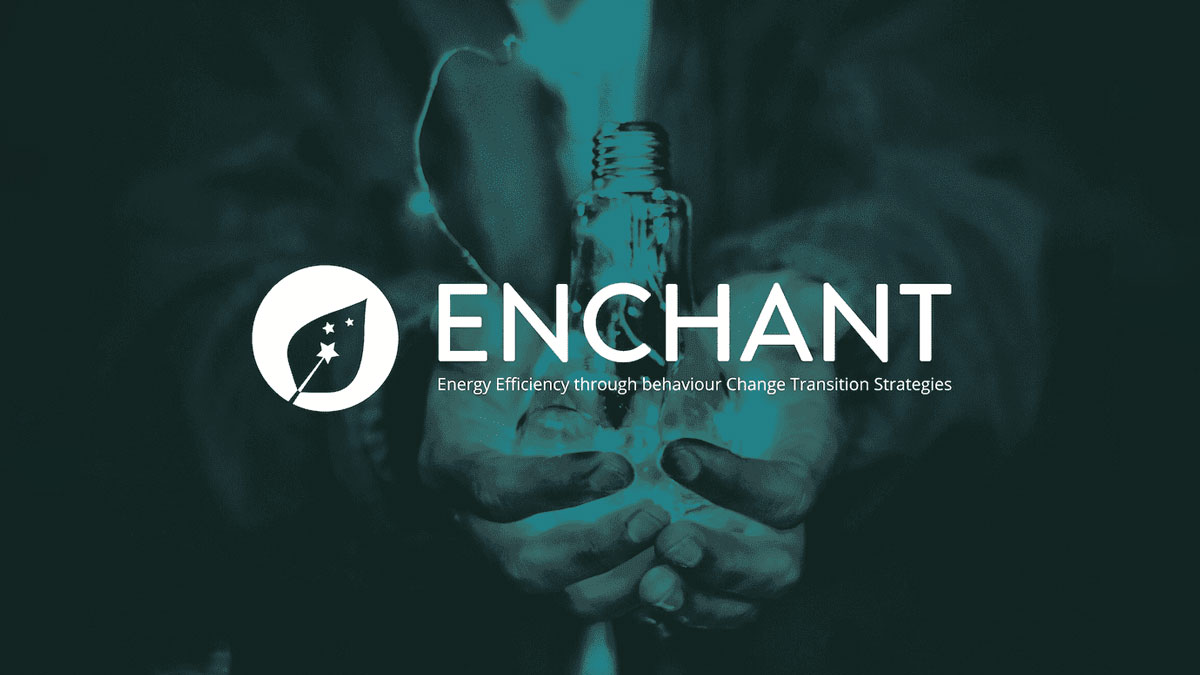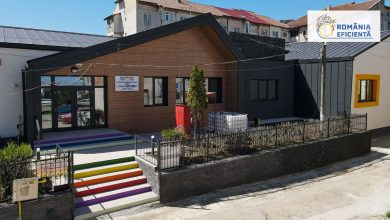ORSE Campaign to Save Electricity for Households in Romania
Romanian energy consumers are invited to participate, starting from May 4th, in an unprecedented European campaign, which aims to determine the best ways to make electricity consumption more efficient in homes, through measures that do not involve costs for the consumers.
The campaign is part of the European research project ENCHANT, funded by the European Union’s Horizon 2020 research and innovation program, and is taking place in six countries: Norway, Germany, Austria, Italy, Turkey, and Romania. At the national level, the project is implemented by the Center for the Study of Democracy, the initiator of the Romanian Observatory of Energy Poverty (ORSE), together with the Babes-Bolyai University, the City Hall, and the Local Council of the Cluj-Napoca Municipality and Electrica Furnizare. The information on consumption to be collected through the platform will be modelled with the help of an innovative system of data interpretation based on artificial intelligence, to produce public policy scenarios adapted to the reality on the ground and a diversity of real-life situations, to support a policy-making approach that is different from blanket policies, which do not consider the specific needs of households.
The ENCHANT research project aims to support the energy transition and seeks to understand the need and behaviour of electricity consumption in homes in Europe and what information households need to succeed in making their consumption more efficient.
The data is collected through a method established in medicine called Randomised Control Trial (RCT) and aims at the voluntary participation of households in experimental groups that test consumption behaviours. Science-based behavioural intervention techniques previously tested in laboratories are being tested in ENCHANT in real life, in an unprecedented large-scale effort targeting millions of European citizens.
The fact that consumers from six European countries participate in ENCHANT produces an immense opportunity to learn about consumption behaviours in a variety of social, economic, or cultural contexts, producing a broad base of public policy solutions.
“ENCHANT is a research project that tries to find out what could help Romanians reduce their household energy consumption and what are the limits of this desideratum. The project is part of the wider initiative – Living Lab – of the Faculty of Political, Administrative and Communication Sciences of Babes-Bolyai University, which tests the effectiveness of some measures and public policies in communities. The information coming from households will result in public policy solutions produced with the help of artificial intelligence, to be applied in support of household consumers at European, national, or local level, considering the realities of households. The stakes involved are important, as is the participation of consumers,” stated Anca Sinea, researcher at Babes-Bolyai University, coordinator of ORSE and the campaign implemented in Romania.
She explained the benefits for Romanian consumers who will participate in this exercise: “In addition to the interesting information they can obtain regarding their own energy consumption, fellow citizens will receive suggestions and recommendations on how they can save more energy in their homes, which is quite important, considering the current level of energy prices. In addition, based on the findings after aggregating the data, consumers will have the opportunity to influence European and national policies, by proposing public policy scenarios which are much more favourable to the situation of consumers”.
“In order to benefit from the trust of Romanians, the energy transition process must take into account the specific challenges and needs that our citizens have and contribute to increasing the quality of life. That’s why I invite citizens to participate in this exercise necessary to improve the decision-making process in the field of energy – a subject of great importance, especially in the period of energy crisis we are going through,” added Emil Boc, Mayor of Cluj-Napoca.
“What we are asking for is to be helped, as researchers, to understand how energy is consumed in the homes and how consumption behaviours formed over time can be changed. In this sense, the objectives assumed by the project are ambitious, the scientific approach is refined by leading scientists and is consolidated on an unprecedented volume of specialist studies. But the stake of data coming from household consumers remains important. Without the participation of citizens in this exercise, the expertise of the researchers will be based on a series of assumptions at most, and the solutions that will be proposed to make energy consumption more efficient or improve the quality of the environment may not have the expected effects,” noted Daniel David, Rector of Babes-Bolyai University.
“According to the repeated studies carried out by Electrica Furnizare, electricity consumers in Romania show a great willingness to change their behaviour in terms of electricity consumption, declaring themselves open to receiving practical information regarding various methods to reduce energy consumption at home. This trend shows us a huge potential that can have a major impact on the efficiency of energy consumption among household consumers, in the context of specific European and national objectives. The ENCHANT platform is a linking tool between Electrica Furnizare, as an important supplier on the energy market in Romania, consumers, the university environment, and public authorities in order to identify functional solutions with long-term effects,” pointed out Darius Mesca, the General Manager of Electrica Furnizare.
How the electricity saving campaign will take place in Romania
The campaign to save electricity for households in Romania will take place through the ENCHANT platform, intended to collect data on household energy consumption, also available in the Romanian language: https://app.enchant-project.eu/ro/mission/ax6b-uhy7. It lasts six weeks for each registered user.
Consumers voluntarily enrolled on the project’s platform are asked to answer a set of questions about their own electricity consumption, to help researchers better understand their household’s consumption pattern. Then, for six weeks, consumers will report their electricity consumption on a weekly basis. The information needed for reporting can be retrieved either from the electricity meter installed in the home, or from the dedicated app, in the case of those who own a smart meter. Also, during this time frame, participants will receive weekly emails with tips aimed at improving and evolving consumption due to implementing the recommendations received from the platform.
The organizers of the ENCHANT project hope that this campaign will help the consumers involved to reduce their electricity costs significantly and that both parties can learn a lot from this experience. Details about the project can be consulted at https://app.enchant-project.eu/ro/
About the Romanian Energy Poverty Observatory
The Romanian Energy Poverty Observatory (ORSE) is a project initiated by the Center for the Study of Democracy, a think-tank established in 2006 within the Department of Political Sciences, Faculty of Political, Administrative and Communication Sciences, Babes-Bolyai University Cluj, within which it functions as accredited research centre.
The aim of this initiative is to provide a 360-degree perspective on energy poverty at the national level and to ensure the necessary expertise to combat this complex phenomenon, which affects a large part of the population. ORSE brings top experts from various fields relevant to the topic of energy poverty in Romania to the same table, to identify the best solutions. More information about this project, but also about the phenomenon of energy poverty at the national level, can be found on the ORSE website: www.saracie-energetica.ro.







